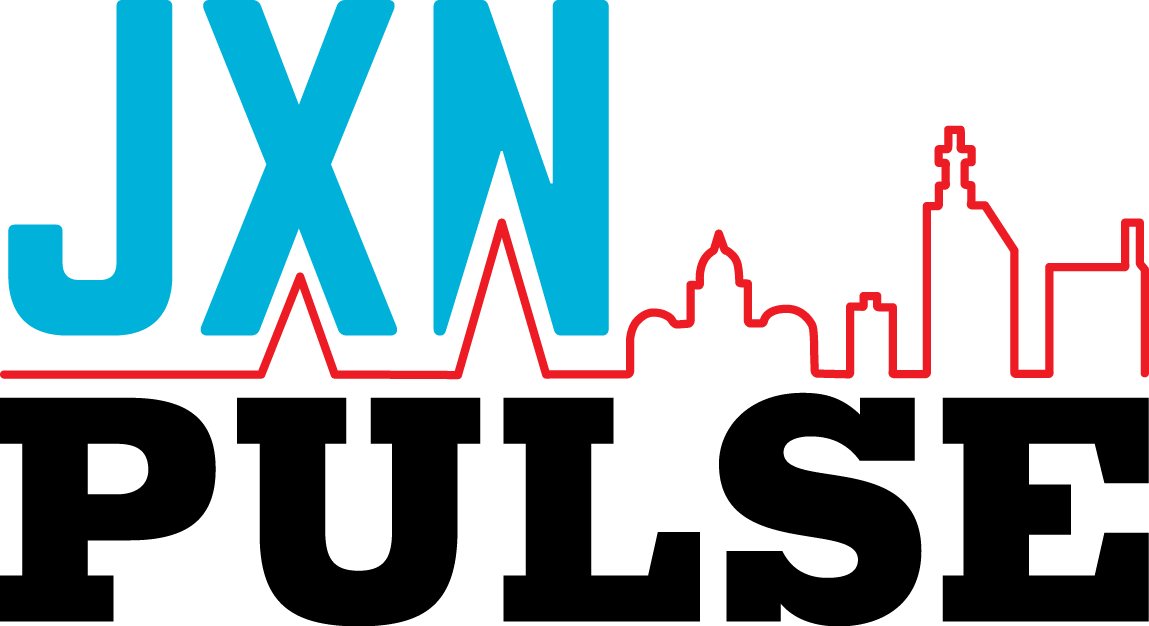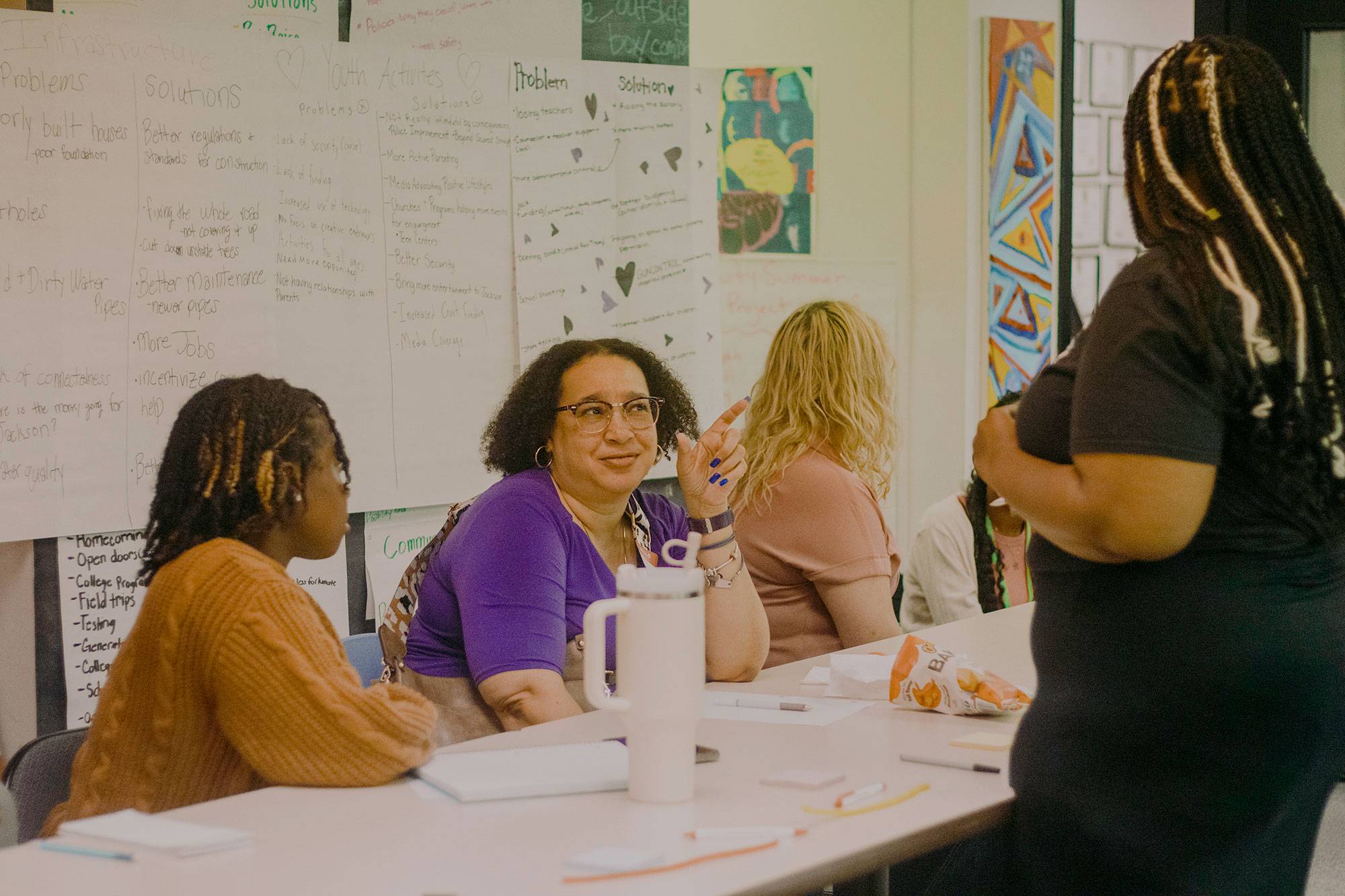By Hannah Evans
When Shonnie Cooley was growing up, she learned in her own home that voting was an urgent act. “My great-grandmother told me at a young age (that) two things are important: education and voting,” she said. “She lived to be almost 103, so she was a part of the right to vote. So I vote in every election.”
Cooley talked about the need to be fully engaged in elections, especially as a Black woman, in a Solutions Circle think-tank conversation with Youth Media Project students in our downtown Jackson newsroom in June 2024. She addressed the urgency of turning out to vote in every election—including this year. Having her determined grandmother as a role model was pivotal, she says.
“That made me understand the importance of our voice, and even if the candidate didn’t win, we at least went out there and gave our vote,” she said. As an adult, Cooley became a public-education advocate, working for Parents for Public Schools. “It had an effect on politics for me, especially around education,” she said. “It’s fighting for what’s right when it comes to our public education system.”
But not everyone is as plugged into the need for voting as Cooley is—even in this pivotal national election year. Part of that may be the lack of voting education for many young people.
Meeting Students Where They Are
With the 2024 presidential election approaching, many people have a common idea: they’re not voting.
The voter turnout rate has increased, with the 2020 presidential election having the highest voter turnout since 1990. Mississippi saw a small increase in its number of active voters, too, with more than 300 new voters casting ballots in the race. Despite these increases, many people could still look at the two candidates and not want to vote for either candidate—so they may choose not to vote at all.
Many people don’t understand how national or local elections work due to the lack of civic education in high schools, meaning that Mississippians who become eligible to vote on their 18th birthdays might not understand how to fill out a voting ballot, the registration process or when and where to vote.
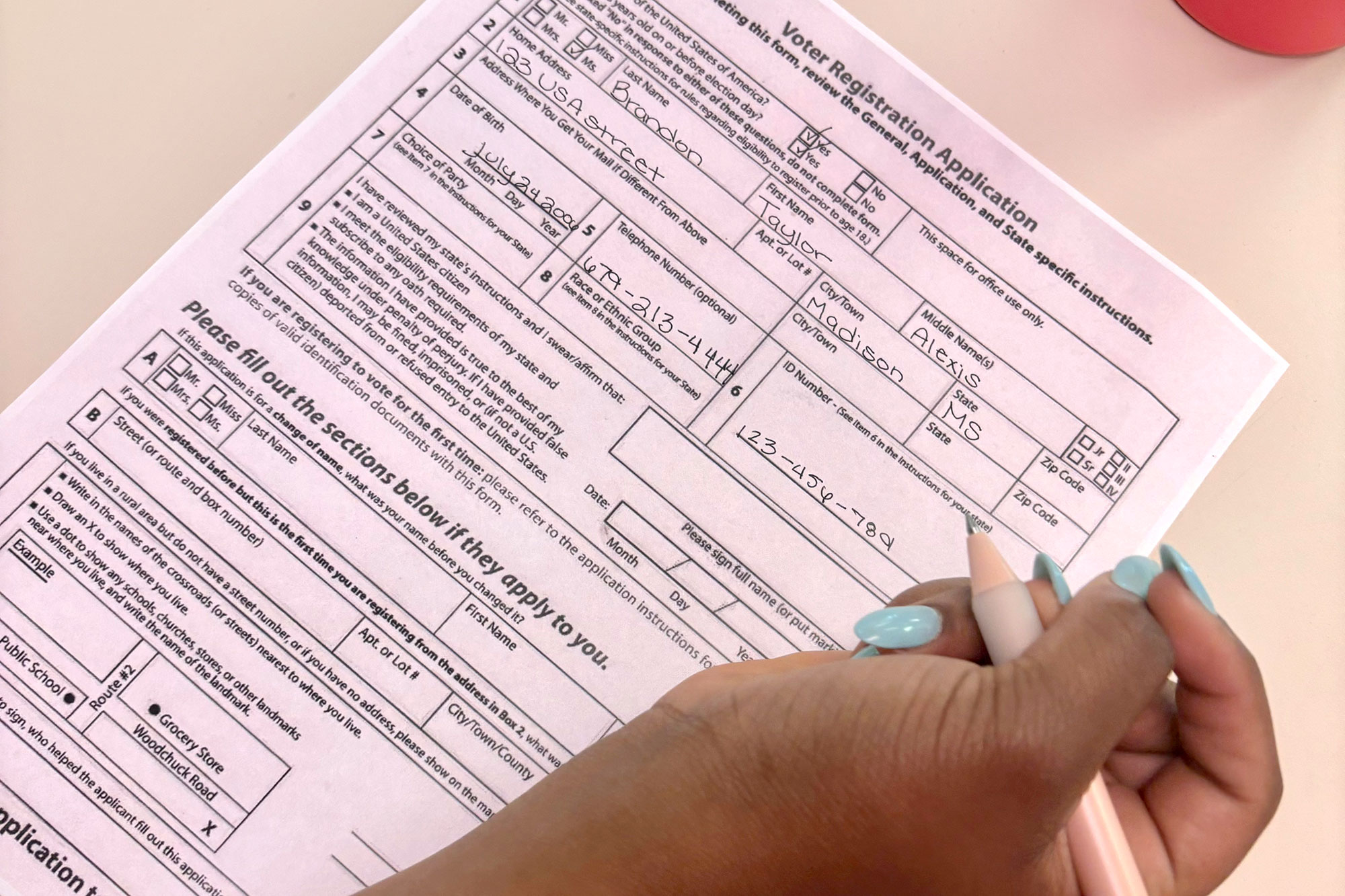
It’s not uncommon for older people to talk about how they participated in mock elections back when they were in school—which most summer 2024 YMP students have never had a chance to participate in. Back in 1992, the Clarion-Ledger reported that more than 50,000 Mississippi students had voted in a National Mock Election (with Bill Clinton leading statewide over George W. Bush and Ross Perot among high-school students). The same year, 69 high schools and more than 250 students, mostly in Jackson metro schools, attended a mock election rally in Brandon.
In 1996, then-Secretary of State Eric Clark traveled to high schools across the state to lobby students to participate in Promote the Vote activities, including mock elections, drawing more than 150,000 students in 300 Mississippi schools to sign up to be involved. “Voting is crucial to democracy”—despite who they voted for, Clark told students across Mississippi.
‘Not A Huge Focus Put on Social Studies’
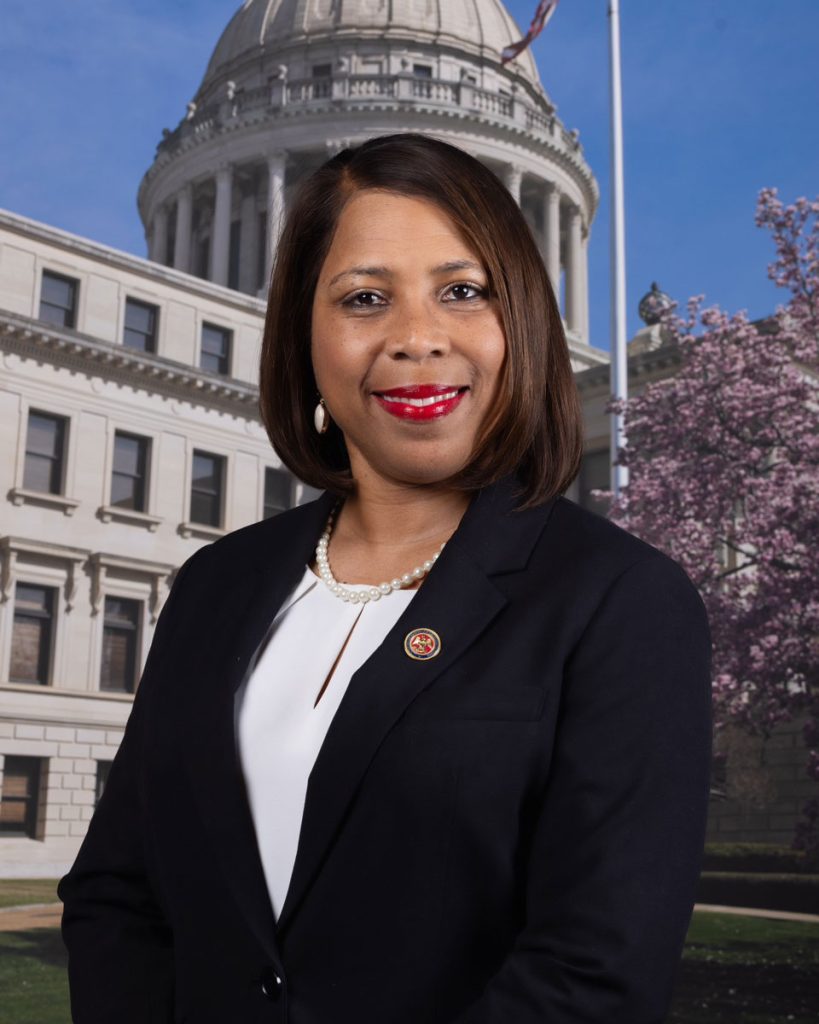
But in the YMP newsroom in summer 2024, only one hand went up when asked if the students had participated in a mock election at their schools throughout the Jackson metro: Braden Overby of Simpson Academy, a private school 38 miles south of Jackson. Today, many Mississippi teenagers do not encounter such efforts to get them interested in voting, and the teaching of civics—the study of the rights and duties of citizenship—has decreased as prepping for important state tests draws a lot of classroom time.
Rep. Grace Butler-Washington, D-Hinds County, seeks to combat this knowledge gap. “My son, he’s in Jackson Public Schools. It has been instilled in the teachers to make sure that the students are prepared for the state testing, which is science, math and reading, so it’s not a huge focus put on social studies,” she told the Youth Media Project.
But the right kind of collaboration could fill that civics gap, the legislator added. “What should happen is a partnership between a county election commissioner and the circuit clerks, along with the Secretary of State’s office,” she suggested. “I think that partnerships need to be formed locally with school districts to allow those entities to come in to talk to students in regard to voting.”
“They could educate our children on the importance of voting and getting them registered to vote,” she added.
To close gaps in her son’s civic education, Butler-Washington says she prioritizes the election process at home. “My husband and I discuss the importance of voting to him, and he takes him with us to cast our ballots, allowing him to see the process and participate in the process so he can get a better understanding,” she said.
Many Mississippi residents learn about voting within their own household where they are taught that voting is important. “I’ve voted in every election since I registered in 1966,” Carolyn Hackett of Jackson said in an interview. “Voting is a right that every citizen has, and I think we should exercise the right to vote. Growing up, voting was very important in my family.” Hackett is the retired vice president of corporate affairs and the chief of staff for Harvey Johnson Jr., the first Black mayor of the capital city.
Statewide advocacy groups are trying to emphasize the importance of voting to those groups who may not have the familial experience with voting that Hackett had.
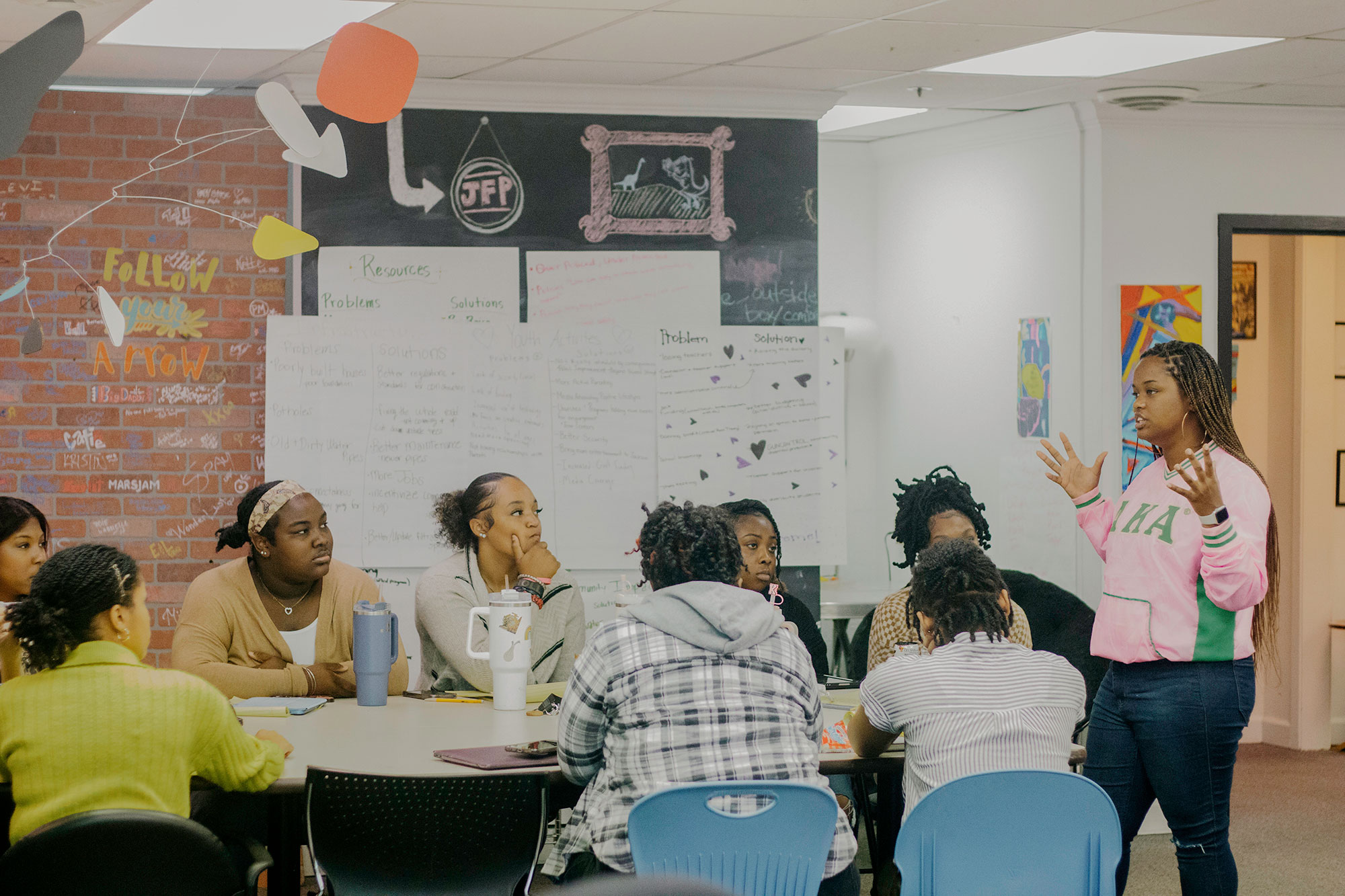
“At MS Votes, one way we encourage young people to vote is to really explain to them that voting is one of the most powerful tools to use to voice your opinion and make a direct change on what’s going on,” Maisie Brown, the advocacy and outreach coordinator for MS Votes, told the Youth Media Project. “If you look at who makes the laws, how things are passed, and how processes are created, most of those things are created by people who are voted into office.”
Brown, also a former Youth Media Project student journalist and then contract mentor, says that the statewide advocacy group is focused on expanding its reach, running ads in places as far-reaching as the coast and the Delta.
“We get calls from people all across the state trying to get their rights to vote, questions on how to get to the polls—and just pushing out resources and information people can access regardless of where they are,” Brown concluded.
Hannah Evans is a 2024 Youth Media Project student who attends Madison Central High School.
